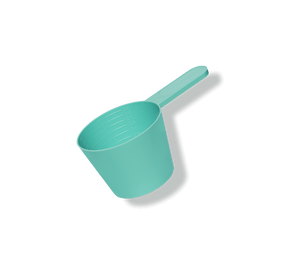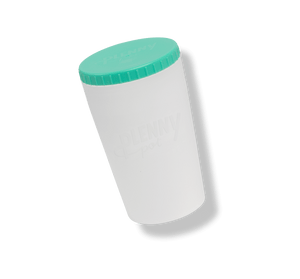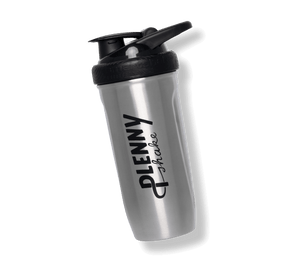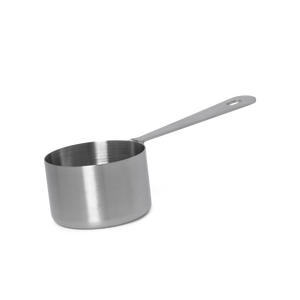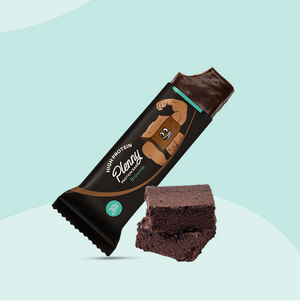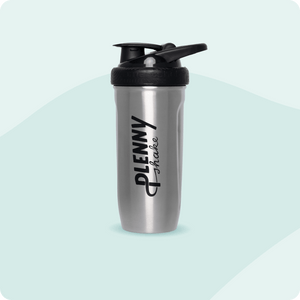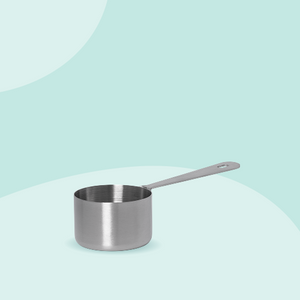Maintaining your weight can be quite tricky since so many factors have an impact on your average weight.
This guide helps you when you want to maintain your weight.
This guide has three sections.
- Weight maintenance in general.
- How to maintain weight after weight loss.
- How to maintain weight after weight gain.
Each section concisely discusses best practices and gives general examples on how to manage your weight in your situation.
How Weight Maintenance Works (Part 1 of 3)
If you are reading this article you are most likely at your weight goal.
Well done!
Either losing or gaining weight is not a walk in the park. It needs time, dedication and patience.
So give yourself a high five for coming so far!
Once you get at your goal weight you have reached the next stage, not the final destination. Yes, maintaining weight can be really interesting and fun.

Weight maintenance: influencing factors
In order to maintain your weight, you need to make some adjustments for the long term results. Some factors will change over time. You’ll have to consider:
- Your age. As you grow older you will have to adapt to maintain your weight because your metabolism changes.
- Physical activity may increase or decrease, changing your energy balance and possibly your lean body mass.
- Your health status may go through changes. As in, hormonal or metabolic. Medication may also have an effect.
- Your dietary patterns change. Either voluntarily or involuntarily (food allergies, intolerances, etc).
As Forrest Gump said: “Life is like a box of chocolates. You never know what you’re gonna get”.
What do I need to know when maintaining weight?
Just like with weight loss or weight gain you need to recalculate your TDEE (total daily energy expenditure).
To find out exactly how many calories you need to maintain a healthy weight you’ll need to find out how high your basal metabolic rate (BMR) is.
It will be higher or lower from your starting weight. You can calculate it using this page. Once you have the new figures you can plan the next steps.

Are you maintaining weight after weight gain or weight loss? This makes a difference in how you approach weight maintenance.
What did I initially do to reach my goal weight?
What were the winning factors?
As in, was there a certain exercise protocol or nutritional agenda?
The more you know, the better and the easier it will be.
When you reflect on this you identify patterns and triggers more easily. Preparing for different scenarios or even setbacks will help to keep you on track.
How many calories do I need to maintain weight?
If you do not want to stop losing or gaining weight, you need to be hitting your maintenance calories you calculated.
For example, if you burn 2000 calories on average per day then that is what you are wanting to aim for.
This, of course, may vary over time, so we would like to give you an overview on how to keep those results and your ideal weight in check!

Weight Maintenance After Weight Loss (Part 2 of 3)
So you’ve reached your weight loss goal. Awesome!
Reaching your goal is one thing, maintaining weight loss it is another.
Did you know that only 20% of dieters manage to stick to their weight goal in the long term? This may sound discouraging, but don’t worry! We have prepared this section for you to successfully help you maintain your achievements. [1]
Why do people regain weight?
Good question! Here are three common reasons:
- Lifestyle changes were not sustainable. The weight was achieved through strict rules and willpower instead of new habits that are easily maintainable in the long run.
- Weight loss was achieved through a (very) restrictive diet without real learnings about long-term healthy nutrition. High-caloric restriction may downregulate your metabolism and get your appetite-regulating hormones in a twist!
- The wrong mindset. The weight goal was reached using short term goals (physique, peer pressure, etc.) instead of health or performance-related goals. If your purpose is not sound, willpower will wane over time.
Do calories still play an important role?
Yes. You will have achieved your goal by having a negative calorie balance over time – by restricting calories from food and/or burning more.
For example, you lost weight by healthy eating of about 1600 kcal per day, instead of your required 2,000 calories. If your daily requirements are now around 1900 kcal after you recalculated your TDEE, you will need to start closing the gap so you don’t lose even more weight.

Most people normally don‘t do well jumping straight back to eating more calories since this may increase appetite and could lead to eating more than you intended.
That’s why you should carefully increase your calories week after week.
For example:
- Week one: 1700 kcal daily intake
- Week two: 1800 kcal daily intake
… until you hit your maintenance calories.
Be cautious: an increase in carbohydrates and food in general may lead to water retention, which is short term.
Don’t panic.
If you felt comfortable tracking your food, think about doing this for some more time. After a while you feel like you have it all under control!
Pro tip: if you feel like you have bigger changes affecting your lifestyle it’s always safer to ask a nutritionist for extra help and feedback.
Weight Maintenance After Weight Loss Summary
To make this as easy as possible for you we have created this summary.
Exercise regularly
Make workouts part of your weekly routine and don’t miss out on resistance training. Lean body mass increases your metabolism and BMR.

Studies show that people who exercise for 30 minutes daily, and include lifting weights into their routine, are much more likely to remain successful with maintaining their weight [1][2]!
Eat healthy
Keep your protein intake high, stay hydrated, eat your vegetables and be aware of your sugar and refined carbohydrate intake. Let’s break this down.

- Protein keeps you full and helps reduce overeating. It is also linked to an increase in hormones that help keep your appetite at bay [3]. Also, high consumption of protein (aiming for approx. 1,5-1,8g per kg bodyweight) may help increase metabolism thanks to its thermic effects through digestion [4]!
- Vegetables keep you full and are low in calories and high in dietary fiber. You can eat loads of them without worrying about the amounts consumed. The vitamins and minerals they provide us are important nonetheless to help our body function properly on all levels.
- Limit eating sugary foods and refined carbohydrates. The latter are very low in vital nutrients and fiber, leading to less satiety. You’ll feel hungrier and could surpass your calorie recommendation without even noticing!
Track your food intake and prepare for setbacks
Everything you can measure is manageable. The more you learn about your habits and food intake, the easier it will be to react to changes or even little setbacks.
Planning ahead will prevent you from catching yourself off guard if you encounter a setback.[5]
If you fail to prepare, you are preparing to fail.
Manage stress and get enough sleep
Increased stress levels elevate the stress hormone cortisol. This hormone is linked to increased appetite and food intake and may make you eat impulsively [6].
A lack of sleep will also impact your weight loss maintenance success due to two other hormones: Leptin and ghrelin.
Ghrelin can become elevated due to a lack of sleep, causing more appetite.
Leptin, on the other hand, is a hormone linked to appetite-control and sleep deprivation tends to lower it [7].
What a combo!
Practice mindful eating and focus on lifestyle changes instead of restrictive rules
Mindful eating includes learning to understand your body.
When do I feel full?
How do certain situations affect my behaviour?
Are there triggers that make me do things in a certain way?
In the long run, mindful eating and sustainable changes can actually help you maintain weight without having to track calories since you build trust in your body and needs. [8]
Restrictive rules tend to lead to deprivation and negative feelings toward food. Be realistic about your goals and lifestyle changes.
Weight Maintenance Checklist After Weight Loss
We suggest implementing this one by one, building and strengthening the new healthy habits as the weeks go by.
- Try to exercise for at least 30 min daily. Brisk walks also count. Do the stuff you enjoy!
- Get enough rest: aim for 7-8 hours of sleep per night.
- Keep a journal to reflect on your habits and progress.
- Eat your „5 a day“: Lots of vegetables, leafy greens and seasonal fruits.
- Eat enough protein by adding some to every meal! See how you get on consuming 1,5g of protein per kg body weight! [example: for a 70kg heavy person that would be 140g of protein]
- Stay hydrated! Try and consume at least 30-35 ml of unsweetened tea or water per kg body weight [example: for a 70 kg heavy person, that would be 2,1L minimum]
- Enjoy your favourite foods mindfully and take your time when you eat.
A Word of Encouragement From our Nutritionist
“The more sustainable and gentle the changes to your lifestyle behaviours are, the more successful you will be in keeping the weight off. Make sure to stay alert for a little while longer by monitoring your food intake (in a way you enjoy and find interesting) and step on the scale once in a while to make sure everything is in check. Every extra bit of exercise will also help you maintain those amazing results”.
“Focus on living a life of a healthy person with a high life-expectancy instead of cycling between weight-loss diets. Instead of trying to ditch the „bad stuff“, integrate more of what’s good for you instead. A healthy long term lifestyle still has room for your favourite foods and cheeky snacks.”
“Weight management is not just about calories, but also about physical activity and mental health! So, always remember to enjoy yourself and prioritise the things that are the most fun and make you feel good!”
Thanks Holly!
How to Maintain Weight After Weight Gain (Part 3 of 3)
Well done for reaching your weight goal by putting on those hard earned kilos! Most people consider gaining weight easier, but if you do it the healthy way you have to be just as committed as the people who try to lose it!
We would like to give you some guidance on how to maintain this new physical state of which you can be very proud!
Below you’ll find an answer to the following questions:
- How many calories do I need to consume?
- Why do people lose weight?
- Do I need to change my exercise routine?
- How do I plan for long term success?
Figuring out what works and what doesn’t
Once you have hit your goal weight you will have to make tweaks to your diet and lifestyle to make sure you keep your gained weight. This means understanding how you got your body this far.
It really helps to reflect on all the big or small details that led you to success. You need to know how many meals per day have worked well for you. Also, how much you’ve been sleeping and working out will help you understand what to keep on doing.
A recalculation of your daily needs is the starting point.
How many calories do I need to consume?
The amount of calories your body burns to maintain a certain weight depends on quite a few factors!
Now, some things won’t change, like your gender and height. Obviously, before you started to gain weight you (hopefully) calculated your daily calorie burn! With a few extra kilos you will be burning more now!
First, let’s have a look at how many calories you burn now.
For example, you started out burning 2000 kcals a day before the weight gain. To gain, you then started consuming 2500 kcals to be in a surplus!
You may have packed on some good quality body mass, leading you to a new daily calorie burn of 2300 kcals.
If you continue eating the 2500 kcals you will probably gain even more weight!
So to stay where you are now, you’ll have to drop back down to your actual figures. It comes in handy when you know what you’ve been eating.
Cutting back those extra 200 kcals may have resulted in simply eating a snack less or reducing a portion size of one of your meals.
Why do I lose weight?
It can be quite frustrating to see your weight in a different place where you’d like it to be. Weight loss can have many reasons.

- Stress and a hectic lifestyle can easily lead to you skipping meals, thus not getting enough calories for your requirements.
- Caffeine may go hand in hand with a busy schedule. Not that coffee is an issue, but for many people coffee can lead to reduced appetite. We are less likely to remember our meals and snacks if we are not hungry. It’s worth reflecting on your coffee drinking habits if weight loss is a concern.
- Smoking reduces appetite and can cause weight loss (apart from black lungs…).
- Time management and prioritisation are also factors. If eating your meals just isn’t that important and you let other things get in the way, you are losing opportunities to refuel and collect those needed calories.
Do I need to change my exercise routine?
Muscle mass you have built and gained needs constant attention. Lean body mass burns more calories in a rested state than other tissues.
We therefore suggest you continue with the routine you have established to reach your goal. Resistance training and lifting weights is a great way to maintain the gained body mass.
For example, you can increase your exercise by going for a run if you feel like it. Just keep in mind that you may have to compensate for the extra burned calories with an additional snack!
How do I plan for long term success?
Let’s make sure you have a good guideline on how to maintain everything you have achieved so far! The worst thing you can do is to simply hope that everything remains the same, without putting in some work.
Don’t worry, it is not that much as it sounds like. This checklist will give you the right direction to stay on track!
- Keep on doing the things that work well for you. If you documented the journey to your goal weight, you will have seen actions that have been successful. Do the things that work for you, there is no need to start experimenting for no good reason :-)
- Plan ahead. When you know what’s happening in your schedule, you can make sure you are prepared and have everything you need at hand! You don’t have to prep a full week, but planning every 2-3 days in advance helps a lot.
- Share your goals with people who support you. Talking about your actions and goals helps stay on track and increases long term success since you’ll have others cheering you on.

 Everything You Need In One Meal
Everything You Need In One Meal
 Stay Full For 3-5 Hours
Stay Full For 3-5 Hours








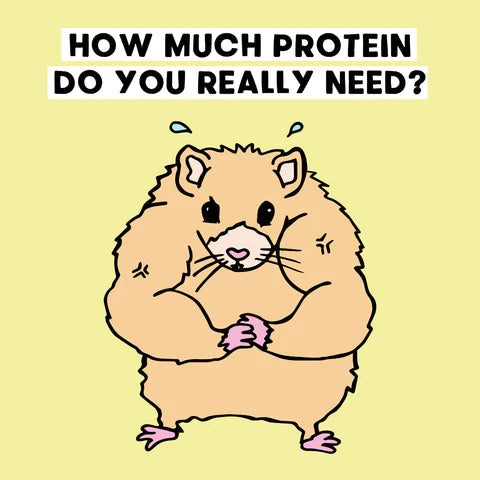











 Product added to cart
Product added to cart







